Eda Tang
Originally published on Stuff.co.nz
26th March 2022
There are calls for a public apology to endometriosis sufferers in Aotearoa. It follows the Australian government announcing a $58 million fund on Friday, part of their endometriosis action plan and apology in 2017. A new study reveals an average 8.7 year delay and five doctors are seen before diagnosis. The delays leave people struggling with chronic pain and multiple negative impacts. Eda Tang reports.
Hev McIvor is a fighter but not by choice. At just 27 years old, they’ve endured years of chronic pain caused by endometriosis, battling a health system indifferent to their non-binary, Māori specific needs.
Delays in diagnosis, treatment, and management left McIvor fighting depression alongside their illness, leaving them reliant on their family for financial support. The experience nearly cost McIvor’s life.
It all started because their GP refused to send a referral to Gynaecology, said McIvor.

“I had to keep telling them I’ve lost my job and was getting suicidal because of things. It just takes away your dignity. It takes away your confidence.”
McIvor had to ask multiple times for a referral. In the end, after an attempt on their life, they were finally seen by a specialist.
“But the one thing that scares me the most of the whole experience is I could have been dead and people would just put it down as depression, because that’s what my GP thought I had, rather than an actual physical condition.”
12% of people assigned female at birth have endometriosis, a chronic condition where tissue similar to the lining of the uterus grows in places it shouldn’t. It can cause severe pain, menstrual irregularities, infertility and secondary pain conditions.
McIvor was 20 when the first symptoms started, but it took five years to be diagnosed. They received pelvic physiotherapy at 25, essential to help with endometriosis associated symptoms, but it was stopped and took another two years to restart. Working part-time because of their condition, they could not afford private physiotherapy. Their pain management began recently at the Wellington Regional Hospital.
“Every time I called them they would tell me that I wasn’t a priority.”
New evidence about diagnostic delays – no more excuses
McIvor’s experiences, and those of thousands of other sufferers, have been validated by a new report, the first evidence of the diagnostic delay of endometriosis in Aotearoa.
It was released by a group of researchers in New Zealand, revealing the average diagnostic delay is 8.7 years and on average, five doctors need to be seen prior to diagnosis.
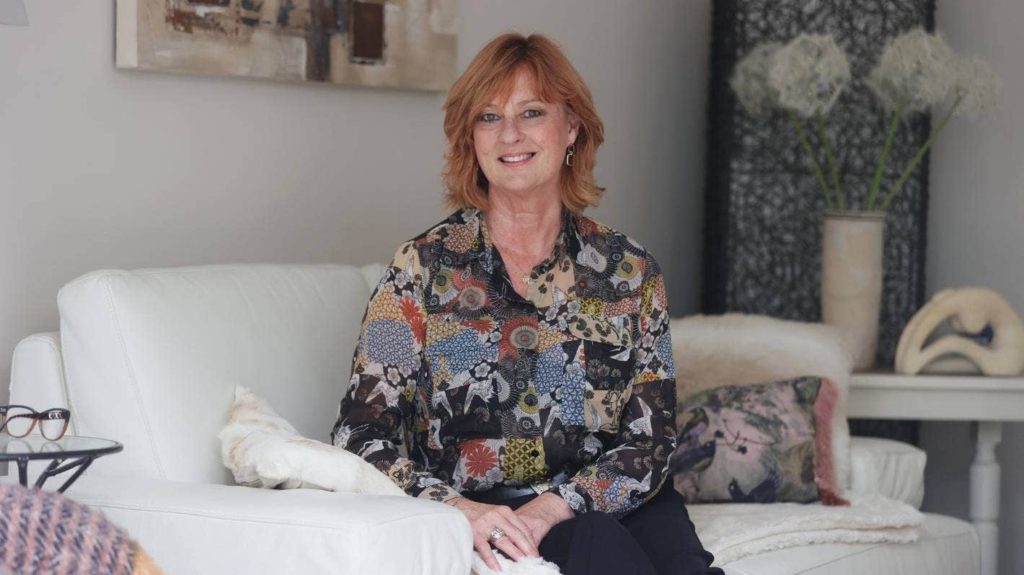
Co-author Deborah Bush, MNZM, QSM, a director of the World Endometriosis Society, hopes the data will put pressure on health decision makers to prioritise the Clinical Pathway for the Diagnosis and Management of Endometriosis launched in 2020.
“I’m sure that no one who sat on that taskforce expected that pathway that we worked so hard for to be languishing, gathering dust in the bowels of the [Ministry’s] website,” says Bush.
With this new data, Bush says, “excuses are inexcusable.”
A Ministry spokesperson told Stuff the Clinical Pathway was “developed by the Ministry of Health, alongside stakeholder representatives [aiming] to improve the diagnosis and management of endometriosis in New Zealand, across both primary and secondary care.” Further, the Ministry “aims to ensure guidance is updated as new evidence and clinical best practice emerges.”
Bush has countered the Ministry’s position saying, “The only implementation to take action on it has been one GP webinar [and] no action plan.” The development of the Clinical Pathway was not funded by the Ministry. Instead, taskforce volunteers were offered tea and on one occasion, chocolate biscuits.
Bush spent 22 years driving the publication of the pathway with little co-operation from the Ministry, she says. Since 1998, proposals for a clinical pathway were met with no enthusiasm, disinterest, inaction, praise for ‘good work’ and eventually slow action.
Last year, Bush says she was told the Ministry would not progress with putting any more resources into identifying and developing further actions to implement the Clinical Pathway.
The dreadful, personal costs of endometriosis
Jess Sandoval, a patient advocate, was diagnosed with Stage IV endometriosis over twenty years ago and still experiences severe pain.
She says, “There’s nothing that holds [providers] accountable to follow [the Clinical Pathway], so people are still taking years to get diagnosed.” Sandoval was referred to pelvic physiotherapy in January last year, at the Wellington Regional Hospital. Every time she made enquiries, Sandoval says she was told by staff the physiotherapist vacancies were unfilled and no one was available to see her, so she remained on the waiting list.
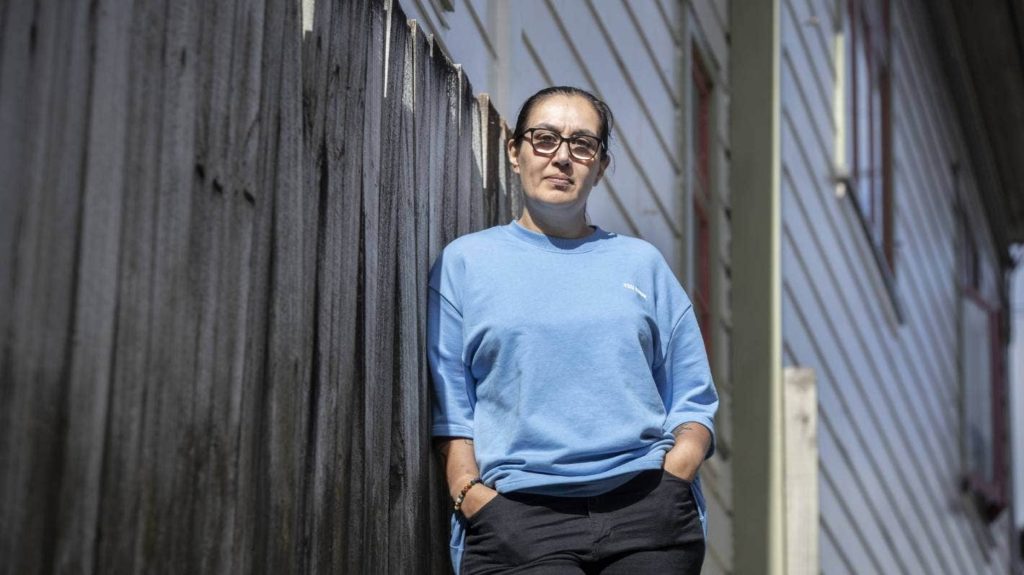
On Friday, after Stuff made enquiries about the physiotherapists, Sandoval also reached out and was told the physiotherapist positions had been filled since November last year. Staff were contacting patients on the wait list to set up appointments. Following her call, Sandoval finally got her appointment booked for the end of April.
But she has paid a terrible personal cost because of the delays.
As a result of untreated pain, Sandoval now has fibromyalgia and nerve damage throughout her pelvis. In the last three years, Sandoval has been regularly taking morphine to manage the pain. It’s left her struggling with mental health and lead to her divorce.
“All the pain and the pregnancy losses, you know, not being able to work and stuff like that, it took a toll on our marriage.”
A national apology from the Government
Dr Michael Wynn-Williams, an advanced laparoscopic gynaecologist and board member of Endometriosis New Zealand, says the Government needs to apologise and develop a New Zealand action plan.
“I think it’s time that we stepped up, and I think a national apology to women with endometriosis is called for,” said Wynn-Williams.
“There are just as many people with endometriosis in New Zealand as there are people with diabetes and asthma,”, said Wynn-Williams.
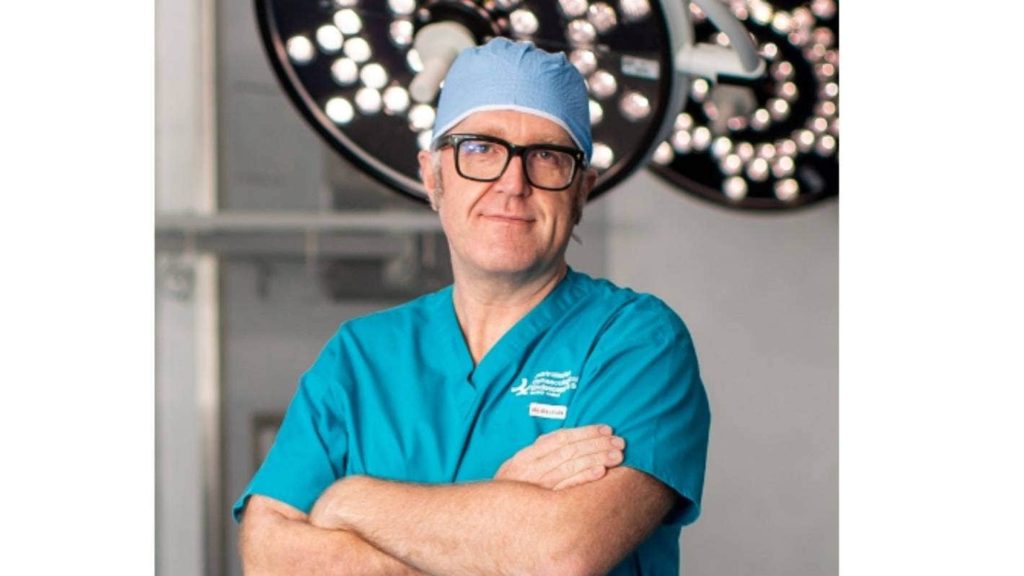
In 2017, the Australian Minister of Health Greg Hunt apologised on behalf of the government and implemented a new national action plan for endometriosis.
“It was such a priority that the Liberal government in Australia they had a national apology … to sufferers of endometriosis for the delay in diagnosis and lack of treatment.”
On Friday, Hunt and Australian Prime Minister, Scott Morrison, announced a record $58 million fund to be provided under the national action plan for endometriosis. Initiatives include specialist clinics, access to funded MRI scans, research scholarships, education programmes and a digital platform to access evidence-based information.
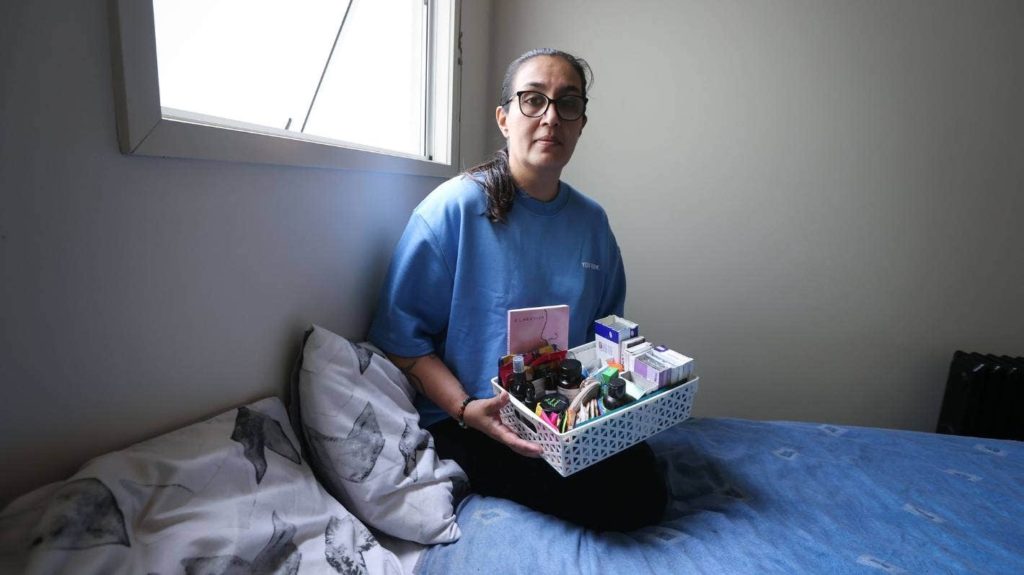
Wynn-Williams is also the New Zealand representative on the Australasian Gynaecological Endoscopy and Surgery Society. In previous years, “the Australian government funded $15 million worth of scientific research and … clinical research like looking into the delay of diagnosis and the cost to [people] for having endometriosis.”
He says another study revealed one in six people with endometriosis have lost their jobs because of the disease. In New Zealand, there’s no way of getting that information, Wynn-Williams says. Nor is there any clinical research on the impacts of endometriosis on Māori, Pacific people and other ethnic minorities.
Bush says, “It’s hard enough having endo. Its even harder if you’re Māori, part of an ethnic minority, or a rural, immigrant, or gender non-conforming patient because of inequities of care and cultural or diverse differences.”
She says the World Health Organisation (WHO) is calling for more research and awareness on endometriosis to ensure early diagnosis and management of symptoms. For the WHO, it’s a matter of health, wellbeing and human rights, says Bush, but the directive is being ignored by the Ministry of Health.
Teddi Crampton, who prefers to be called Teddi, is gender-fluid, and has always felt uncomfortable going to ‘women’s health departments’. They said, having a uterus and gynaecological issues doesn’t mean all sufferers are women.
The first time Teddi went to a doctor for gynaecological complaints at 15 years old, it was suggested they become pregnant. There is a long held myth endometriosis gets better after pregnancy.
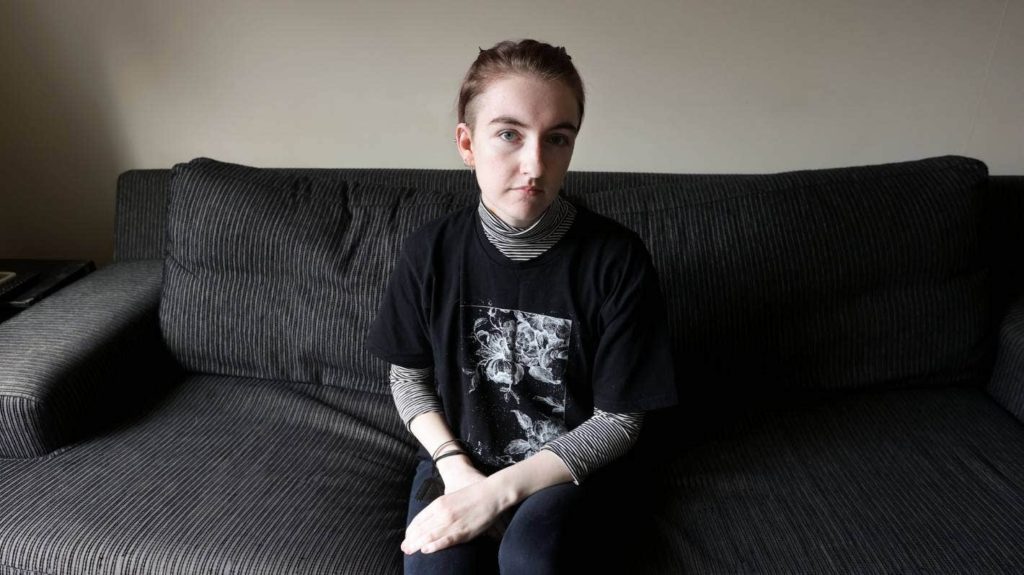
“The suggestion of just getting pregnant to solve endo makes me wildly uncomfortable, and a little disgusted.”
Teddi had a surgery postponed twice and the pain was so severe they had to drop out of university. “I had to stop my life completely.”
The Ministry’s hospitalisation data, reported by district health boards, does not capture gender.
A Ministry spokesperson said this is because “it is a clinical database where the biological sex of the patient is important in the context of the clinical information that is collected there. For example, in the diagnosis and treatment of male vs female breast cancer.”
The spokesperson said it is the responsibility of the clinician not the Ministry to support transgender and non-binary patients with endometriosis in their diagnosis and treatment.
“I work very, very hard to be the person that I want to be and to like myself,” says Teddi.
An apology needs to include systemic change
“The government being accountable for their actions? Yeah, I think they need to apologise to everyone suffering in our health system,” said McIvor.
More than the apology, McIvor wants to see changes and systems in place to stop the bias and ignorance surrounding uterus related issues, as well as preventing period poverty and mental health issues caused by poor treatment. Teddi agrees an apology needs to come with funding for reduced diagnostic delays and more support post-diagnosis.
Battle-hardened from their health system experience, McIvor now advocates for others with the debilitating condition and LGBTQ+ rights.

Everywhere they looked for social support on endometriosis the focus was mainly on women and being able to have children or not.
“The last time I had surgery, the first thing I did when I woke up was correct a doctor [on my pronouns]”, said McIvor.
“They already make out like your illness and the pain that you’re suffering is all internal, like a mindset, rather than actually physically feeling pain.
“Then, when it comes to my gender identity, I feel that that’s what they see as well – they just think it’s me having a mental illness,” said McIvor.
Stuff asked the Ministry of Health about the 2017 Australian apology, and if the New Zealand government had considered apologising too? And, whether the ministry or Minister of Health should apologise now?
In an emailed statement the ministry did not address the apology at all.
Instead, it stated, “The Ministry acknowledges that any length of delayed diagnosis for endometriosis can have a negative impact on quality of life and wellbeing. The best practice guidelines we issued for health practitioners in 2020, promote recognition of the symptoms consistent with endometriosis.
“Through our discussions with a number of stakeholders, we know the guidelines are an important addition to help clinicians with the early detection and treatment of endometriosis.
“We strongly encourage all relevant healthcare professionals to familiarise themselves with the guidance so they can incorporate them into their care.”



